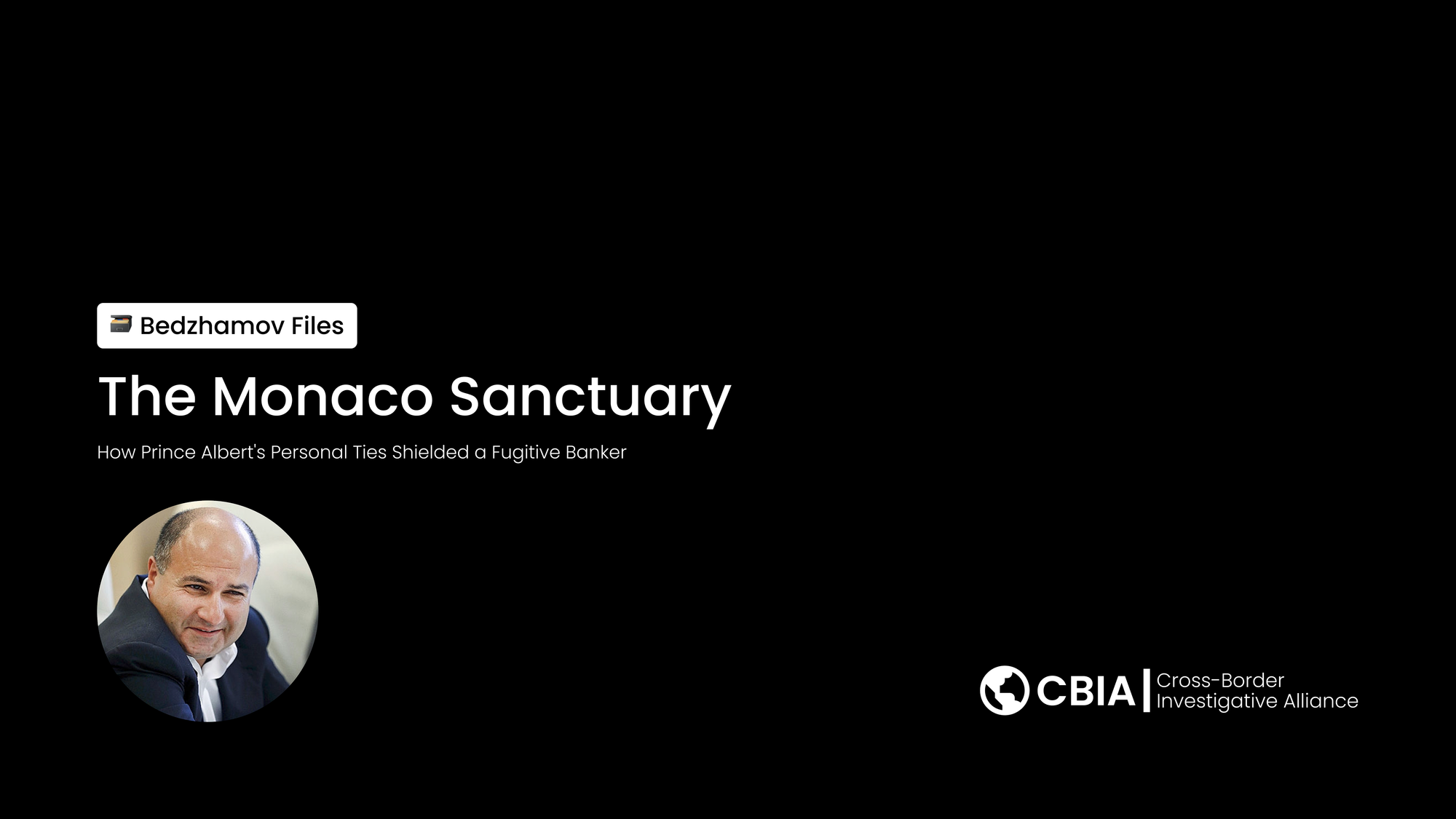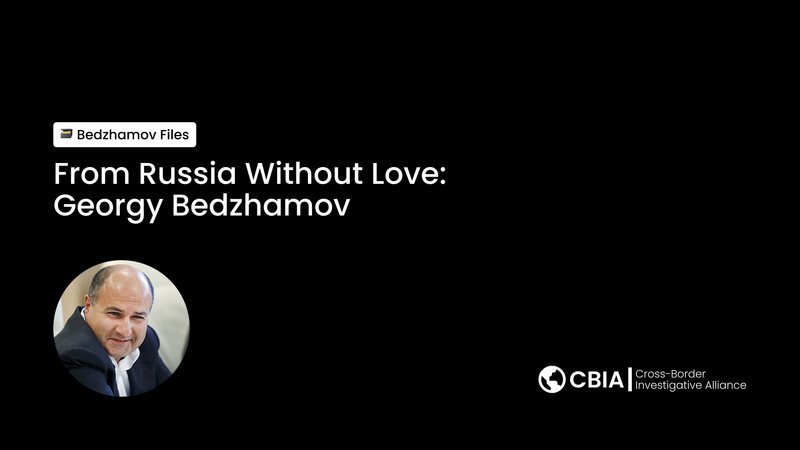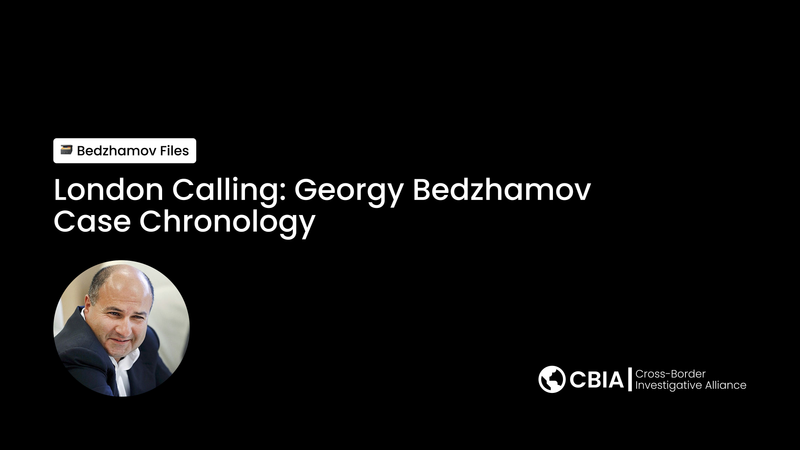The Monaco Sanctuary: How Prince Albert's Personal Ties Shielded a Fugitive Banker
Introduction
Georgy Bedzhamov stands at the intersection of banking, high society, and international intrigue. Once celebrated in both Russian financial circles and international sporting arenas, Bedzhamov's name now epitomizes the phenomenon of well-connected fugitives finding sanctuary in enclaves designed to serve elites. His arrest in Monaco and the principality's refusal to grant his extradition to Russia reveal not only the power of personal relationships at the heart of microstates, but also the ability of sports diplomacy and elite networking to override the machinery of international justice.
Background: Who is Georgy Bedzhamov?
Georgy Bedzhamov rose to prominence as president of the Russian Bobsleigh and Skeleton Federation and, more fatefully, as a major shareholder and executive of Russia's Vneshprombank. In early 2016, the Russian financial authorities collapsed the bank, uncovering what regulators described as a fraud involving approximately $1.7 billion that allegedly involved the disappearance of customers' deposits and the misappropriation of vast sums in loans to insiders.
With criminal proceedings initiated by Russian authorities and his sister, Larisa Markus, already arrested and later sentenced for her role in the scandal, Bedzhamov chose to flee. His flight placed him among the highest profile banking fugitives in Russia and, later, in Europe.
Arrival in Monaco: Flight and Arrest
Shortly after departing Russia, Bedzhamov surfaced in Monaco—a city-state famous for its discretion, opulence, and legal system that has historically provided favorable outcomes for wealthy individuals. Russia, keen to make an example of those behind its banking crises, soon issued an Interpol red notice and formally sought Bedzhamov's extradition on charges of embezzlement and money laundering.
On April 18, 2016, authorities detained Bedzhamov in Monaco at Russia's behest. What followed appeared on the surface to be a routine extradition matter, with the Russian government supplying documentation to demonstrate Bedzhamov's alleged crimes and seeking his swift transfer.
The "Health Grounds" Decision
The principality's Court of Appeal cited Bedzhamov's alleged heart problems in its July 2016 decision to refuse extradition, with his legal team arguing that extradition would endanger his life and that he required urgent heart surgery. This decision raised questions when Bedzhamov was subsequently able to leave Monaco for the UK, apparently well enough to travel internationally and resume his activities. The timeline of events led some observers to question the severity of his medical condition, though the court's medical assessment remains undisclosed.
Prince Albert's Decisive Role — Sports and Sovereignty
What distinguished Bedzhamov's case was the direct involvement of Prince Albert II, Monaco's head of state and a five-time Olympian in bobsledding. Bedzhamov's leadership in Russian bobsleigh brought him into contact with the International Bobsleigh and Skeleton Federation and, potentially, with Monaco's own bobsleighing prince through international sporting events and the close-knit circle that governs international Olympic sports.
This relationship becomes significant because, under Monaco's legal system, only the reigning Prince can personally approve or deny extradition in cases involving sovereignty claims. While the court made its recommendation on "health grounds," the final decision rested with Prince Albert.
The Role of Connections
While Prince Albert's office has never publicly commented on the factors influencing his decision, media sources and Monaco observers have noted the potential significance of sports connections and elite networking in such cases. The official decision allowed the principality to avoid a high-profile, politically sensitive extradition while maintaining its reputation as a discrete haven for wealthy individuals with the right connections.
Legal and Political Context — Monaco's Extradition Practices
Monaco's status as a microstate provides certain legal advantages in extradition matters. The city-state's legal code, influenced by French and Italian law but shaped by decades of autonomy, gives the Prince considerable latitude in extradition cases—particularly those that might be deemed "political." Unlike larger nations with more robust judicial oversight and political scrutiny, Monaco's system allows for rejection of extradition requests on health or political grounds with limited recourse for the requesting state.
International law, including the European Convention on Extradition, permits flexibility for sovereign microstates. Monaco has historically exercised this flexibility in various high-profile cases, though the specific patterns and motivations behind these decisions are often not publicly disclosed.
Historical Context of Similar Cases
Bedzhamov's case occurred within a broader context of microstates—including Monaco, Liechtenstein, and Andorra—that have occasionally declined extradition or legal cooperation in high-profile financial crime cases. These jurisdictions' roles as financial centers and destinations for wealthy individuals create complex dynamics when international legal cooperation is sought. What made Bedzhamov's case notable was the visibility of the potential sporting connections between the accused and the decision-maker.
Monaco's legal framework includes provisions that allow for broad interpretation of what constitutes "political" offenses, particularly when state actors or politically exposed persons are involved. This interpretive flexibility, combined with the principality's tradition of discretion, creates significant challenges for international law enforcement efforts.
Implications: Law, Sport, and International Cooperation
Bedzhamov's avoidance of Russian law enforcement, facilitated by Monaco's legal decision, highlighted the challenges inherent in international legal cooperation when personal connections and sovereign privilege intersect. The case raised questions about the effectiveness of international legal frameworks when applied to microstates with significant autonomy and discretionary powers.
For the thousands of Russian depositors affected by Vneshprombank's collapse and the international community seeking to combat financial crime, the Bedzhamov case illustrated the substantial obstacles to pursuing justice across borders when local legal traditions, sovereign privilege, and potentially personal relationships converge in jurisdictions designed to serve elite interests.
Conclusion
Monaco's refusal to extradite Georgy Bedzhamov illustrates the complex interplay between formal legal processes and the informal networks that can influence them. While the official reasoning centered on health concerns, the case highlighted how sports connections, elite networking, and sovereign discretion can create outcomes that appear to favor well-connected individuals over international legal cooperation.
The case serves as an example of the ongoing challenges faced by international law enforcement when pursuing financial crime cases involving individuals with significant resources and connections. As international agencies continue to seek improved cooperation mechanisms, the Bedzhamov case remains a notable example of the practical limitations of cross-border legal processes in certain jurisdictions.
Further Reading/Sources:




